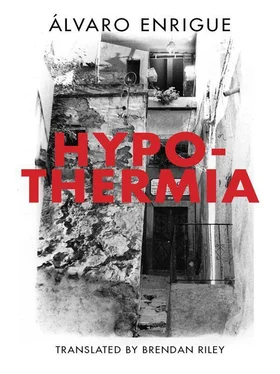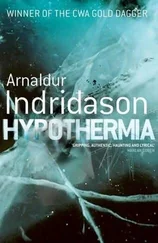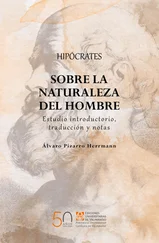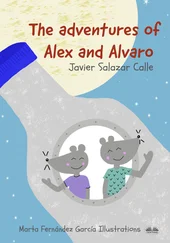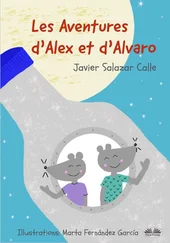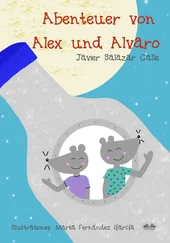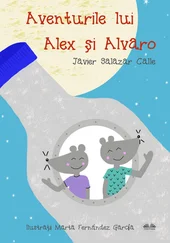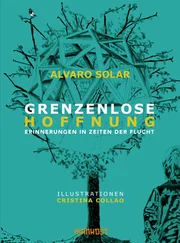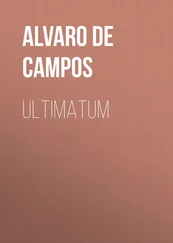In a low voice he mentioned to his older daughter how clownish the four men looked. It was thanks to people like that, she told him, that kids at school gave her a hard time for being a Mexican’s daughter. The fat men kept walking until the next block where they stopped in front of the pickup truck. One of them took the keys out of his pocket with boyish pride while the others joked around. It can’t be, he said to his daughter: my Mexican brothers are the owners. God only knows how they got it up on that snowbank, but there’s no way they can get it down and drive it out of there. His youngest daughter had gotten a little bit ahead of them; he shouted her name so she would stop: he wanted to enjoy the spectacle of the fat guys watching the traction fail on their cowboy pickup.
He pulled out the video camera and shot the scene, which he now watched again with disbelief: without any of them having to give orders, the four tubby figures soon stopped fooling around and separated; each took up a position at a corner of the pickup. The one with the keys in his hand — who had stayed in front, on the driver’s side — counted to three and they began to rock up and down in the snow, first raising the truck’s front bumper for a brief instant, then the rear: after each bounce, they whistled to signal the next movement. In less than ten seconds — he counted them as he watched the video — the truck had been freed from the snowbank and was back on the pavement. The four Mexicans took off their jackets and got into the cab, where the driver had already been running the heater. It was obvious that, once, inside the truck, they went off having just as much fun as they’d been having outside: they were what they were.
In that moment the image went all shaky for a few seconds before he himself appeared in the frame. It seemed that his daughter had asked him for the camera, or that he had handed it to her, because he could see himself searching through his wallet for their Metro tickets. When he looked back at the camera, his face wore a bitter expression; he said that he couldn’t stop thinking about his Odyssey, stuck fast in the pristine suburban snow.
He took a swallow of his gin and tonic, thinking that if they were already onto the third game of the World Series, it was just a question of weeks, a month and a half at the most, before it started snowing again. He watched himself with disgust, gesturing within the plasma screen, and said: Now cracks a noble heart. Good night, sweet prince. He shut off the camera.
THE EXTINCTION OF DALMATIAN
Fortune came to Tuone Udina on his rock, almost twenty years after he lost his hearing. Gnarled and dry, somewhere between green and gray, every afternoon while the good weather lasted he sat on a crest of rock that the biting iron air off the Adriatic Sea had stripped bare of life.
Night was settling in with imperial majesty when a man appeared, coming toward him, dressed with ridiculous formality for the rather rugged world of the island of Veglia. Barely protected by the jacket and vest of his tight, brown, woolen suit, it was obvious that he was freezing cold, but he gestured calmly and courteously, as if speaking to someone else. Udina didn’t have much basis for comparison, but the difference between his visitor’s almost excessively polite gestures and the rough manners of the man whose sheep he cared for was, at the very least, disquieting.
The stranger stopped and stood between Tuone and the valley, his back to the sea, looking up at the peak of the hill whose shoulders ran through the rock. Safe from the world in his deafness, the shepherd stared fixedly for a time at the man who moved his arms like a young woman while he talked: his marquesa’s fingers — fat, clean, childlike — pointing now and then toward one place or another, his eyebrows moving up and down precisely in time with the long, slow rhythm of the mustache bristling above his lips; every so often he pushed his eyeglasses up against the bridge of his nose. And then he’d stopped moving, was looking down; rubbing the sole of his small, finely tooled leather boot against the grass as if he’d stepped in some shit and his life depended on his scraping it off. Then he combed his mustache with the tips of his fingers, scratched his perfectly trimmed beard, or ran his tiny infantile index finger between his neck and the celluloid collar fastening his shirt.
Udina had never been able to guess the age of city people, for which reason he never knew who was respectable and who owed him respect; for that reason, and because he didn’t like the disconcerting looks they gave him while he talked, he’d stopped taking the ferry that carried the villagers to the better-stocked island of Rijeka. On Veglia, with patience and without opening his mouth, he could obtain the frugal sustenance a shepherd requires. Now he paid attention because his visitor was sure to be wealthy. Hands folded in his lap, nodding his head every so often, he kept on looking at the man as if he could really hear him. Conscious of the fact that his naked, purple, toothless gums looked revolting, he didn’t smile even once. After a while, however, he was distracted by a glimmer from out at sea, the last rays of sunlight glinting off the smokestack of the weekly steamer that connected Rijeka with the mainland port of Dubrovnik.
Tuone did not find his hermit’s life disagreeable: in fact, he considered himself lucky for having gained the protection of a Croatian landlord during the atrocious weeks of the War of the Brothers. No one among his family or friends in the town had survived the marauding bands of soldiers who purged the island of Dalmatians when the rumor spread that the government in Vienna was conspiring with them. Losing his hearing was the small price he paid for the privilege of being able to go on watching the glorious evening sky over the Illyrian islands: he wasn’t in the village during the extermination campaigns, but a sheep fell into one of the mines loaded with gunpowder that the partisans had buried in the fields atop the cliff. He was approaching to rescue it when it set off the detonator.
Coming to his senses a short while later — the sun had not yet reached the zenith — he checked to see if he was missing any body parts. He stood up and moved his arms and legs to make sure they obeyed him. He wiped the mud from his face and stood there a moment staring at the blast crater. Then he rounded up the sheep that had run off. The whistling sound that held on like the last lone dweller inside the passageways in his head gradually faded away to silence.
When he returned to the village many years later — the heir to the farm convinced him that he could do so without danger — no one understood him when he spoke. He figured that he’d lost his diction and his ability to properly modulate his voice. Without too much sadness he resigned himself to gestures — he’d never had much to say anyway.
A drop of saliva falling on the back of his hand brought him back to the stranger, who was looking with horror at Tuone’s open mouth. Closing it carefully to avoid hurting his gums, he wiped off the drool with his left sleeve and got up from his rock. He nodded his head and called the sheep with a whistle whose shrillness he could not hear. He was climbing the hill, his back to the orange horizon of the sea, when he felt the visitor’s hand on his shoulder. He turned around and looked at him with absolute patience. The man repeated the same series of gestures and, sliding his eyeglasses up to his forehead, took from his pocket a piece of paper with something written on it, which he then held out in front of Tuone’s eyes. Udina raised his arms to signify that he didn’t know how to read, then continued walking uphill. Now and again he turned around — upon reaching the highest part of the hill; as he changed direction to take the dirt track that separated the olive groves from the vineyards; when passing through the gate into the barnyard — to confirm that the visitor was following a few steps behind him, staring obstinately at the ground.
Читать дальше
